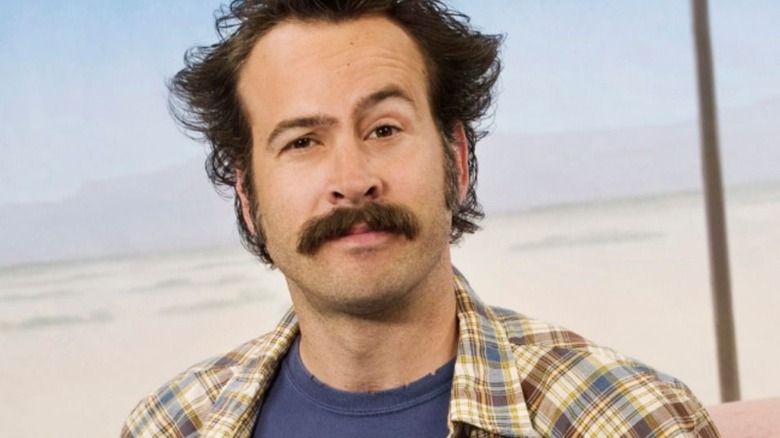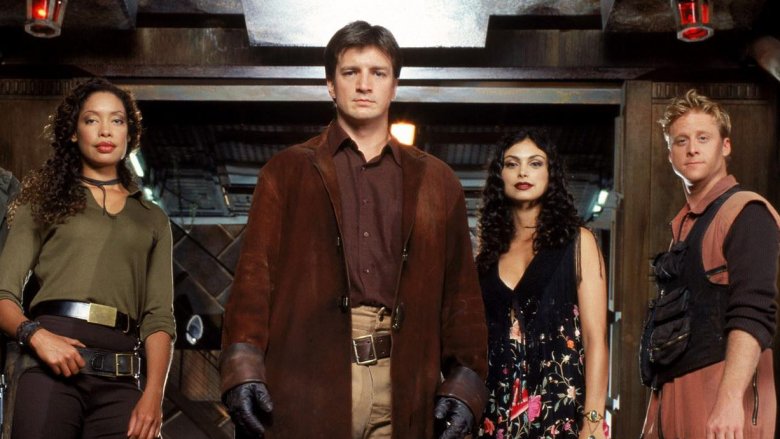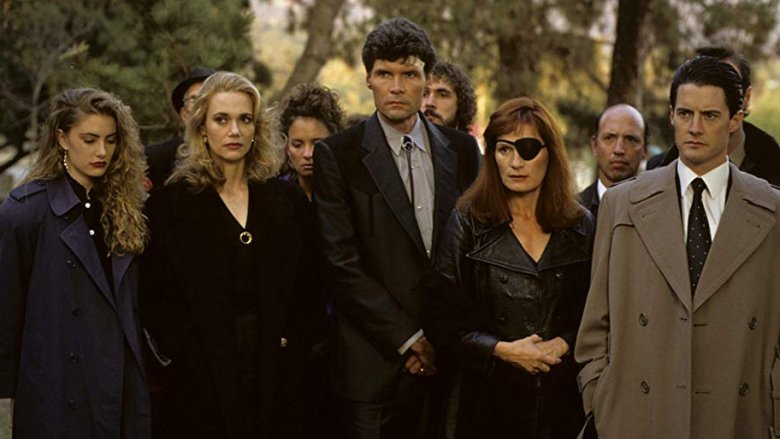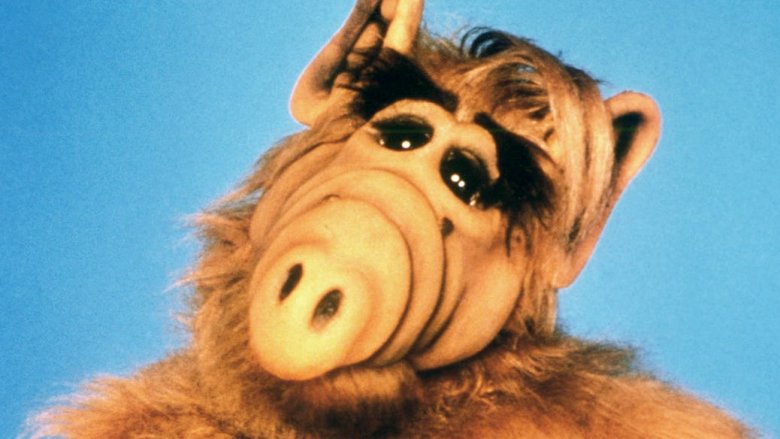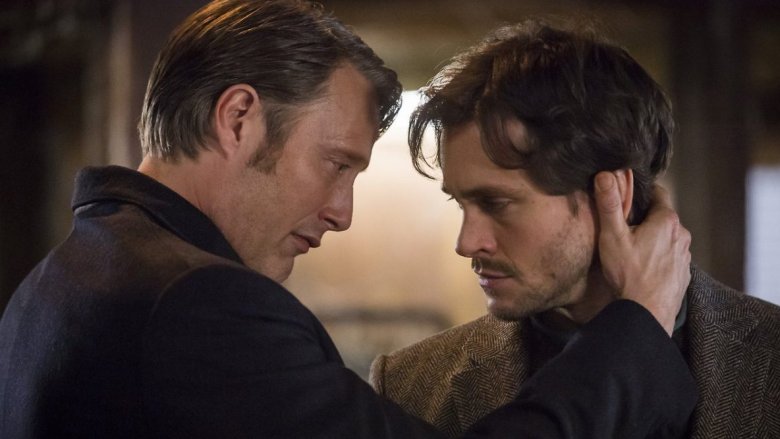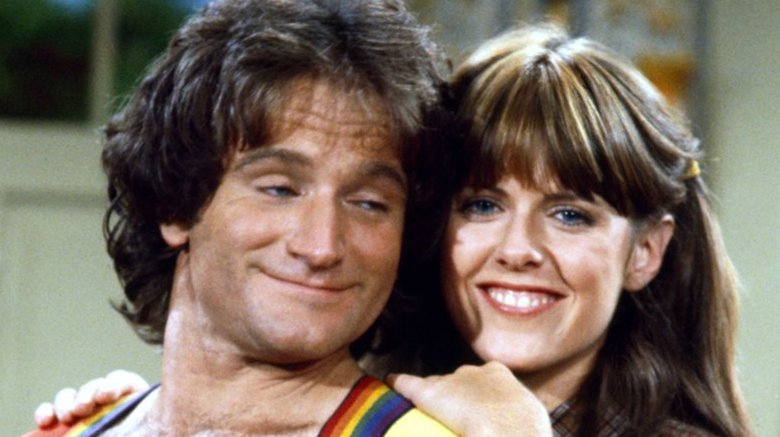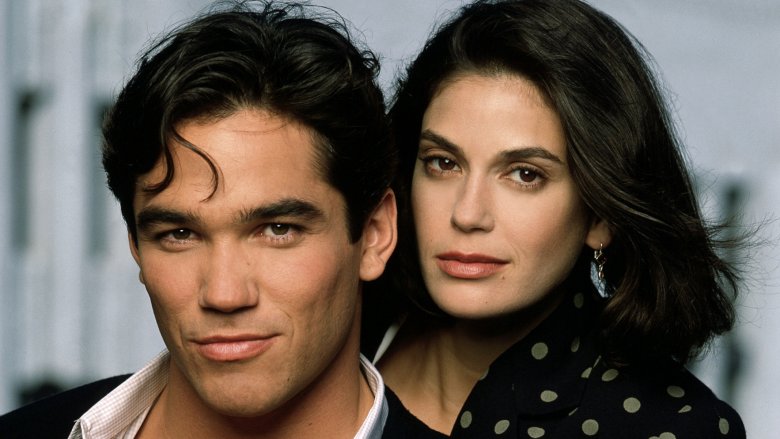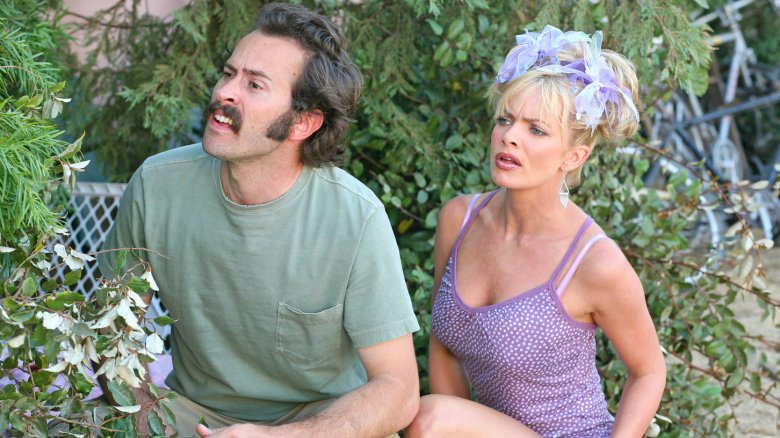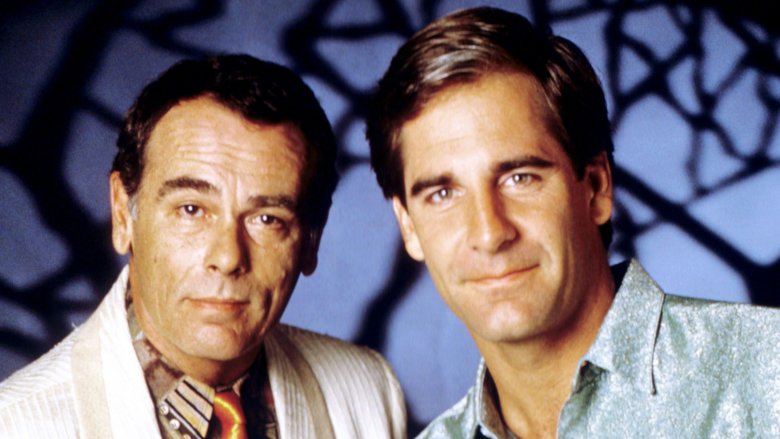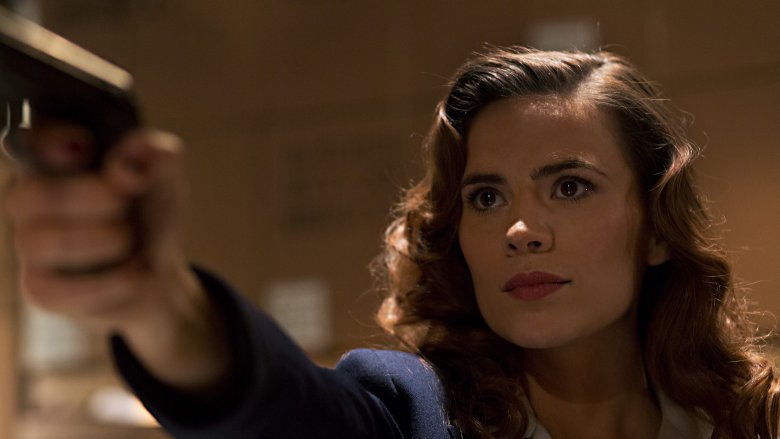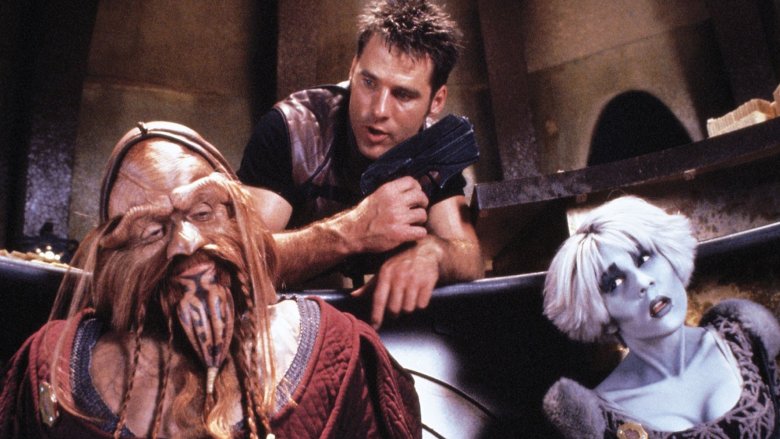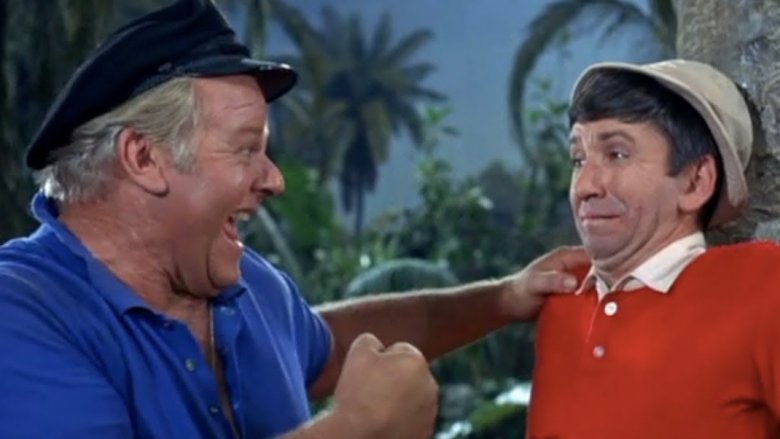Iconic TV Endings That Weren't Supposed To Happen
We may receive a commission on purchases made from links.
Who among us can understand the vagaries and whims of television executives? Over the years, TV viewers have learned that even the most popular or critically acclaimed shows can be axed without a single rational reason. In some cases, they can be canceled completely without warning. And yet, doesn't it somehow feel as if Last Man Standing went on for forty-seven seasons straight?
There's no crueler blow for a TV junkie than that moment you realize you will never see a new episode of your favorite show. It's even worse when the finale seems to come out of nowhere and leaves dangling storylines, abandoned castaways, or even dead bodies behind. And let's not forget all those otherwise great works of the medium that have come crashing down with those three terrible words: "To be continued." Let's take a look at a few of the most sudden and painful cancellations in TV history.
Firefly
Joss Whedon's Firefly has become a poster child for shows that were too good for this world. The network (Fox) never understood what they had, the viewers never turned out in droves, and the budget required for a weekly widescreen space opera couldn't be sustained without those viewers. That ultimately led to the show's cancellation. Sadly, the cast and crew didn't find out about the end of the show until three days before the end of filming — and since the team was working on an episode with an actual funeral in it at the time ("The Message"), it probably added an extra emotional resonance to the end.
Firefly did have a big-screen outing, Serenity, to help wrap loose ends and placate the fanbase. The story has also continued in licensed comics. But even years after the end of the series, the show's elimination still stings.
"Canceling Firefly was as difficult as anything I'd ever been involved in because Joss and I had been creative partners at one time," said Gail Berman, president of Fox Television at the time, when asked in 2010. "If I had to do it over again, I might have reconsidered it but I'm not sure it would have changed anything... It was a wonderful show and I loved it and I loved working with him on it but that was a big show, a very expensive show and it wasn't delivering the numbers."
Twin Peaks
Before Firefly, Twin Peaks was the case study for a show with a passionate fanbase that was canceled unexpectedly by an uncaring network. When the series premiered in 1990, it set off a cultural sensation with its riveting central question: who killed Laura Palmer? Allegedly, Soviet leader Mikhail Gorbachev was so fascinated that he reached out to President George H.W. Bush to ask if he knew who did the deed.
Once that question was answered (against the wishes of the show's creators), however, ratings began to sink and the show's creative brain trust struggled to regain its footing. In spite of that, the second season finale finally reached a storyline that might have rivaled the death of Laura — Agent Dale Cooper (Kyle MacLachlan) possessed by the evil spirit Bob, who had been responsible for Laura's death.
That horrifying final image of Cooper looking into the mirror to see Bob's cackling visage would haunt fans for decades, as the series' unwelcome cancellation meant it became one of the all-time great unresolved TV cliffhangers. Creators David Lynch and Mark Frost were able to circle back to their story and bring their idea of "resolution" to the story with 2017's Twin Peaks: The Return.
ALF
For a show about an alien being who ate cats, ALF felt fairly conventional — it was a three-camera family sitcom tackling pretty mundane issues — that just happened to have a furry puppet as a leading cast member. Things got weird with the final episode, which was originally planned as an end-of-season cliffhanger. ALF was contacted by two other inhabitants of his late, lamented home planet of Melmac, letting him know they were off to colonize a new world. Just as their ship was landing, ALF was captured by the military's Alien Task Force, with plans to experiment on the creature and eventually dissect him.
NBC had given ALF's producers a verbal commitment for another season, but ultimately decided to cancel the show, largely due to a shift in regulations on network-owned shows that meant NBC could develop its own series (and keep more of the profits). Years later, NBC exec Brandon Tartikoff would later admit he regretted bringing about the untimely end of ALF. "It was a big mistake that we cancelled your show, because you guys had at least one or two more seasons left," he told Paul Fusco, ALF's creator.
The dangling plot threads were wrapped in a 1996 TV movie, Project ALF. And somehow, ALF himself has lived on, with a short-lived late-night talk show.
Hannibal
For a guy who's famous for killing, Dr. Hannibal Lecter sure has had a long shelf life. Most recently, NBC ran three seasons of Hannibal, a prequel series (at least, it started as a prequel series, before adapting and reworking much of the character's source material) in which Dr. Lecter engaged in a love/murder relationship with his first FBI nemesis, Will Graham.
Although the series had a rabid fan base and critical acclaim, its ratings never became a ravenous feeding frenzy. It's possible the show's macabre, Grand Guignol tone was never really meant to draw in a giant audience. Executive producer Martha De Laurentiis did suggest online piracy as a possible cause of cancellation, commenting in 2016 that "when nearly one-third of your audience for Hannibal is coming from pirated sites, you don't have to know calculus to do the math."
There's plenty of ways to find out what happened to Lecter and his nemesis after the events of Hannibal, from the novels by Thomas Harris to multiple film adaptations. But the series didn't have a chance to wrap its specific (and wildly divergent) story, with a finale that found Lecter and Graham falling together off a cliff. Though there was no visible hanging involved, it's hard to miss the intention.
Mork & Mindy
The late '70s sitcom Mork & Mindy wasn't exactly known for its gripping multi-episode storylines. At the end of the series' fourth season, producers began a sequence intended to lead straight into season five, with a rival alien attempting to kill Mork, who revealed himself to the world as an extraterrestrial before traveling through time to escape. If you always dreamed of Mork meeting Benjamin Franklin, boy, you must be disappointed to learn that the rest of the story was left untold.
Ratings had been on the decline since season three, and the fourth season was itself an attempt to resurrect the series, with the addition of Jonathan Winters as a reverse-aging child to Mork (an elderly, improvising answer to Cousin Oliver, if you will). Mork & Mindy was cancelled over the summer, meaning that the season four finale became the series finale and never led to the planned fifth season.
What may be most shocking about Mork & Mindy's abrupt ending is how star Robin Williams learned about the cancellation — from the newspaper. "I found out the show was cancelled by reading it in Variety," he told People magazine in 2009.
Lois & Clark: The New Adventures of Superman
The only way to destroy Superman is with Kryptonite, and the only way to destroy Lois & Clark: The New Adventures of Superman was to cancel it. Unfortunately, the cancellation left open a massive cliffhanger — in the final moments of what was to become the series finale, a mysterious baby appears on Lois and Clark's doorstep wrapped in a Superman cape.
As with so many other series ended before their time, this cancellation was a case of a network expressing interest in a season that they would later scrap. While ABC initially informed studio Warner Bros. that they'd renew Lois & Clark for a fifth season, the network withdrew the renewal after ratings tanked in season four. The mystery baby was left forever on the doorstep, and fans were left wondering what would have happened if Lois and Clark had actually been able to raise the kid.
"We didn't write it as a series finale, it was just supposed to be a cliffhanger," executive producer Eugenie Ross-Leming said to Entertainment Weekly. "Looking to create obstacles for them, we ended up saying that carrying a baby to term would kill Lois. But as fate — or intergalactic justice — would have it, a baby of Krypton lineage is left at their doorstep."
My Name Is Earl
When it comes to unexpected cancellations, there are perhaps no more frightening words in the English language than "To be continued..." That's how the final episode of My Name is Earl's fourth season ended, after revealing that the father of Earl Jr. wasn't actually who anyone expected it to be.
According to series creator and executive producer Greg Garcia, the only reason the show had its unexpected cliffhanger was because NBC had assured him that they would in fact renew the series for season five. Garcia did have an ultimate ending in mind to the show; not only did the cancellation leave dangling plot threads, it left the show's central conceit unresolved.
"I was worried about doing a cliffhanger but I asked NBC if it was safe to do one at the end of the season and they told me it was," Garcia revealed on a Reddit AMA in 2013. "I guess it wasn't. I had always had an ending to Earl and I'm sorry I didn't get the chance to see it happen... the truth is, he wasn't ever going to finish the list... Earl eventually realizes that his list started a chain reaction of people with lists and that he's finally put more good into the world than bad. So at that point he was going to tear up his list and go live his life."
Quantum Leap
Like so many other TV classics, Quantum Leap was about someone lost. Dr. Sam Beckett (Scott Bakula) was lost in space and time, hopping into the bodies of other people to help right wrongs, "hoping each time that his next leap will be the leap home," as the show's opening narration explained. An unexpected cancellation for the series meant that Beckett would continue to leap forever, never making it to his destination.
With low ratings already an issue, series creator and producer Donald Bellisario was asked by NBC to write a season five finale that could function as either a season ending or a series finale. With assurances that the show would get another season, Bellisario shot it as a season finale, including a leap for Sam into the body of a space station citizen in the distant future.
When Bellisario learned the show was canceled, he managed to quickly put together a set of title cards that provided an ostensible "closure" for the series. Except it was those title cards that revealed Sam would continue to leap through time. They came with one final indignity — Sam's last name was misspelled ("Becket"). This means there could be another Sam in an alternate timeline whose name is off by one letter, and the real Sam Beckett is home at last... but we doubt it.
Agent Carter
Today, the TV series that have accompanied the Marvel Cinematic Universe are an embarrassment of riches — Agents of S.H.I.E.L.D will air its sixth season in 2019, while a steady supply of Netflix shows (some of them now canceled) have brought us Daredevil, Jessica Jones, Punisher, and more.
At the beginning of 2015, there was just Agents of S.H.I.E.L.D. and Agent Carter, a period piece set in the Marvel Cinematic Universe of the 1940s and starring Hayley Atwell as Peggy Carter, Steve "Captain America" Rogers' old flame from World War II. The show consisted of shorter seasons that aired during the mid-season hiatus of S.H.I.E.L.D.
Unfortunately, ratings weren't where they needed to be, and the second season would be Agent Carter's last — even though it ended with a dead body on the floor and no clues as to who had committed the murder. As executive producer Jeph Loeb told Entertainment Weekly, the decision to end Agent Carter was solely a network call, even if both ABC and Marvel Studios share the same corporate overlord (Disney).
"Unlike the movie studio where they can say, 'In 2019 we're making Captain Marvel,' the television division doesn't have that ability," Loeb explained. "We are, at the end of the day, beholden to the network that we're on. So for all of you Agent Carter fans out there, we didn't cancel the show."
Farscape
The untimely ending of Farscape in 2002 illustrates how TV networks clearly don't abide by the "no takebacks" rule. In fact, networks will take back whatever they damn well please.
Farscape received a confident two-season renewal from Sci-Fi after season three. As ratings dwindled throughout season four, Sci-Fi decided to take advantage of a clause in their agreement with Jim Henson Studios, Farscape's production company, and retroactively "cancel" a season of television they'd already tentatively ordered. Fans learned about the cancellation during an online chat attended by star Ben Browder and producer David Kemper.
Within a few hours, one of the first fan campaigns to showcase the power of the internet to amplify had begun. "Save Farscape" generated so much enthusiasm for the show that investors were willing to fund a TV miniseries, Farscape: The Peacekeeper Wars, to wrap up the series' storylines. One can only imagine how history might have been different if the internet had existed when Star Trek was canceled in 1969.
Gilligan's Island
Of course, perhaps the first and greatest unexpected TV ending came in 1967, when CBS quietly canceled Gilligan's Island after its third season, leaving the castaways potentially stranded there on Gilligan's isle forever.
Author Sylvia Stoddard's 1996 book TV Treasures – A Companion Guide to Gilligan's Island discussed how Gilligan's Island was actually holding its own in the 1966-67 TV season in its time slot against The Monkees on NBC (take a moment to imagine a time when you could choose between Gilligan's Island or The Monkees — now that's "Peak TV"). Based on this, CBS assured Gilligan producer (and '60s TV legend) Sherwood Schwartz that there would definitely be a fourth season, which inspired members of the cast to purchase homes near the show's soundstages in Studio City, CA. CBS then moved Gunsmoke to the Gilligan's Island time slot, forcing the abrupt cancellation near the end of the show's hiatus.
The castaways did eventually return to the mainland in 1978's Rescue from Gilligan's Island TV movie. A year after their rescue, they took a Christmas cruise together... and ended up (you guessed it) again stranded back on the island. Eventually they opened a resort on the island, which was visited by the Harlem Globetrotters, and that's the early '80s in a nutshell, folks.
